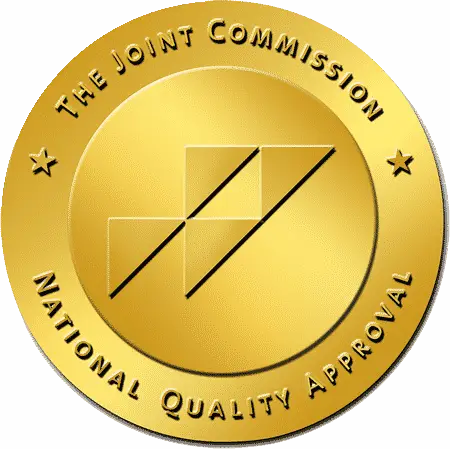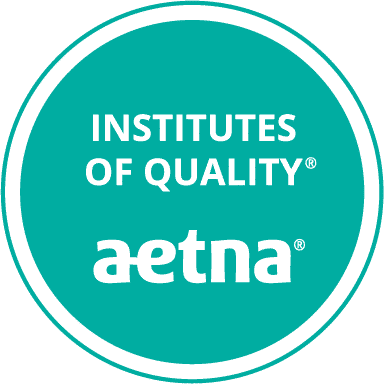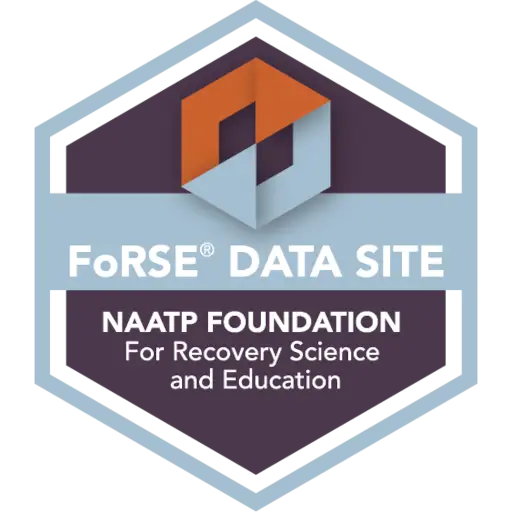After rehab, staying sober is the goal. For some individuals in their journey toward a sober life, addiction treatment is merely the first step.
La Hacienda Treatment Center utilizes evidence-based addiction treatment while patients are on campus and instill concepts from Alcoholics Anonymous to develop mutual support groups in the aftercare plan. To stay sober and free from drug or alcohol use, find sober friends, and a support group for the transition home to maintain sobriety. Getting back into everyday life grounded in sustainable practices for healthy habits and maintaining sobriety has been the success story of many of our alumni.
From engaging in meaningful activities to managing stress without alcohol abuse or substance abuse of any kind depends on developing a robust toolkit that is vital for staying sober.
Leaving drug addiction behind and making a decision to stay sober involves dedication to physical health, emotional resilience, and the development of a nurturing and healthy relationship.
Keep reading to explore how to maintain sobriety and implement strategies that can support sobriety and avoid relapse behaviors.
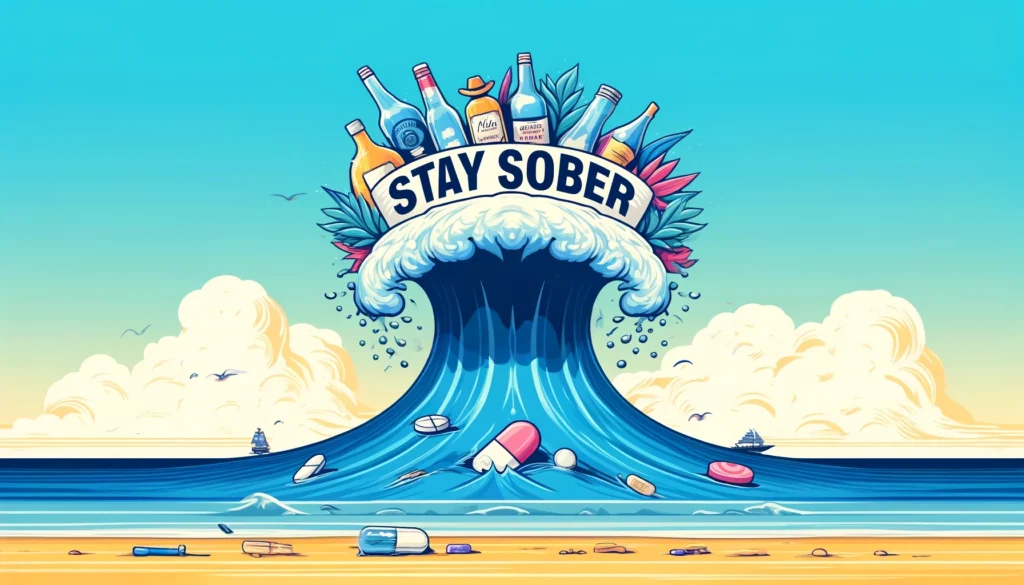
Embracing Sobriety as a Healthy Lifestyle
Navigating the path to sobriety is akin to embarking on a journey of profound transformation; it is not solely about abstaining from substances, but evolving one’s entire outlook on life.
At La Hacienda, a beacon of hope nestled in Hunt, Texas, individuals grappling with alcoholism uncover the tools and tenets necessary to create a sober lifestyle.
With over five decades of unwavering commitment under its belt, the La Hacienda fondly known as LAHA, instills in its patients the importance of setting personal milestones, celebrating each stride forward, no matter the magnitude, and establishing daily rituals that serve as pillars for a life devoid of alcohol or substance use.
As patients leave the safety net of intense alcohol addiction recovery and head back into the world, they carry with them a blueprint to continue their sobriety date with a planned routine, and a desire for renewed healthy living.

Prioritize Self Care and Avoid Sobriety Fatigue
The blueprint guiding individuals to maintain sobriety is personal and daily goals. This first and most important is do not drink alcohol, do not use drugs. La Hacienda encourages patients to cast a vision for their lives post-rehabilitation, underscoring objectives that range from building meaningful and healthy relationships to advancing in their careers.
With these benchmarks in place, patients at La Hacienda have a plan, understanding that objectives with personal significance keep them active and away from the lure of alcohol. Such clarity of purpose catalyzes a sound recovery process and lends self-confidence to their newly sober lifestyle.
Celebrate Small Victories in Your Journey
Recognition of incremental triumphs lays the groundwork for the road to lasting sobriety. One day at a time is very important. Developing a healthier lifestyle will not happen overnight but in the process of living with complete abstinence, learning how to identify triggers, and building a support system.
Sobriety means complete abstinence, but being happy AND staying sober means recognizing the moments of victory. Self-discipline and a reliance on God and others help, accumulate confidence for the individual in recovery.
Create a Daily Routine That Supports Sobriety
Creating a daily routine in inpatient care is instrumental in anchoring individuals with a substance use disorder on their journey to sustained sobriety. At La Hacienda, this principle is accentuated, with structured schedules designed to integrate therapeutic activities, physical fitness, and adequate rest, ensuring each day contributes to the strengthening of one’s sobriety.
Within this structured environment, patients learn to incorporate critical elements such as meditation, peer support, and nutritious well-balanced meals and eating habits into their routines. La Hacienda underscores the notion that a carefully crafted routine but a designed plan helps find a sober friend, address past mistakes, and commit to healthy living without substance use.

Build Healthy Relationships for Continued Support
Leaving LAHA means you have battled alcoholism and substance use disorder. Now is the time to ensure you have healthy relationships for your support system. Maintaining sobriety after leaving a treatment program may include family therapy, outpatient care, and community 12-step fellowships.
Some may leave rehab and experience withdrawal symptoms. All of the doctors at La Hacienda explain post-acute withdrawal symptoms so a person is prepared. Having a relationship with your doctor or healthcare provider can be helpful. If a referral is needed to a new medical professional, this support is handled prior to leaving so you can continue the care you need with treatment professionals or healthcare professionals you have scheduled an appointment with.
A reliable network of friends, family members, and experienced mentors committed to encouraging sobriety becomes a linchpin for those in recovery.
Identify Friends and Family Who Encourage Sobriety
Identifying allies within one’s circle who advocate and reinforce sobriety can pivot the balance toward lasting recovery. These are the cherished individuals who understand the stakes of the journey, offering an empathetic ear while standing firm against enabling old habits or behaviors.
Family members and friends who endorse a lifestyle free from an alcohol use disorder or substance use play a vital role in reinforcing an individual’s commitment to sobriety. Their constant presence serves as a touchstone of encouragement, prompting the affirmation that one’s effort in striving for sobriety is noticed and deeply supported.

Questions to Ask Yourself:
- Does this person play a support role?
- How can this person help?
- Will this person have a positive impact on my sobriety?
- Will this person provide emotional support and avoid tempting situations with me?
- Am I in a co-dependent relationship with this person?
- Will this person say it is ok to misuse substances?
- Are these people supportive of family members?
- Will this person offer encouragement and celebrate milestones with me?
- Does this person nurture a recovery-focused environment?
Connect With a Sponsor
Seeking guidance from someone with long-term recovery is often called a sponsor. Individuals find invaluable guidance through the wisdom of their sponsor. These seasoned navigators, often having triumphed over their own battles with addiction and toxic relationships extend a wealth of knowledge and understanding, offering personalized guidance, coping skills, and unwavering support when facing negative feelings.
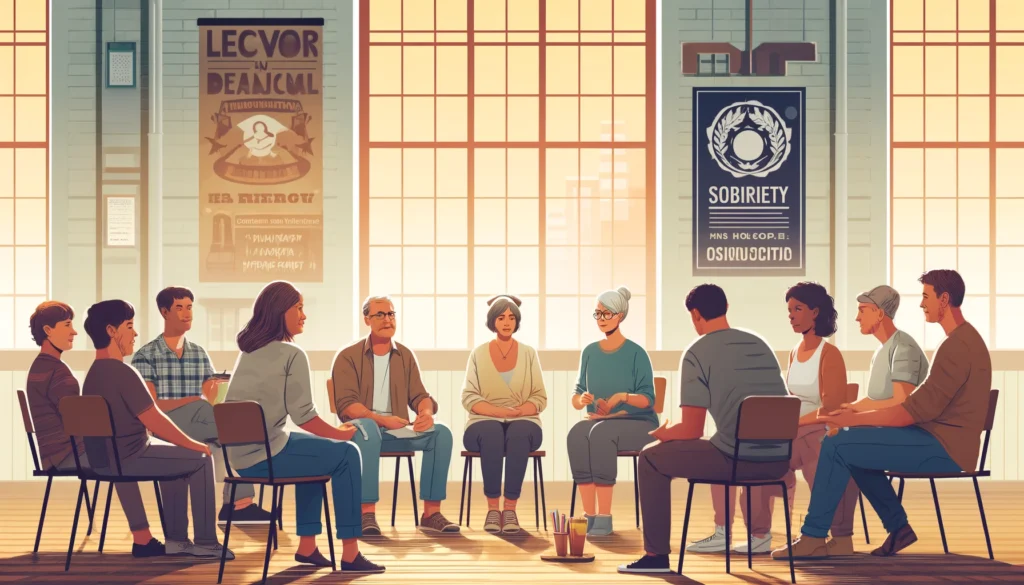
Community Service and Sober Activities
To stay sober requires individuals to reimagine having fun once out of a treatment program. Community service, and volunteering open up for individuals in recovery to immerse themselves in activities that eclipse the role alcohol once played in their lives. Through dedicating time and energy to causes they hold dear, those maintaining sobriety discover a profound sense of purpose and community engagement that reinforces their commitment to a sober lifestyle.
By offering their services, skills, and compassion, to those less fortunate – a person is giving back. One day without substance misuse or alcohol misuse leads you to long-term sobriety. However, it is not just about complete abstinence – it is about getting out of your head and helping others. Amazing how learning new coping mechanisms helps us and others.

Maintaining Vigilance Against Triggers
The recovery journey for addiction recovery requires vigilance against the triggers for substance misuse.
Post-rehabilitation life demands strategic awareness and an unwavering readiness to confront the specter of relapse.
Individuals must hone their ability to discern and identify relapse triggers to not backslide into past mistakes and old patterns.
Establishing clear strategies to sidestep personal triggers, recognizing the potential relapse, and ensuring the foundation of something as simple as the phone numbers of your sponsor or others with long-term recovery are indispensable tools to ensure a sober future.
Recognize Signs of a Potential Relapse
Early indicators of sobriety fatigue or a potential relapse is a crucial skill La Hacienda cultivates in its former patients. Recognizing subtle shifts in thoughts or behaviors, such as romanticizing past alcohol use or diminishing the seriousness of one’s addiction, can serve as a critical alert to preemptively counteract a backslide into old habits.
Detection of potential relapse signs guides individuals in seeking prompt intervention, whether through increased therapy sessions, reaching out to a support network, or revisiting coping strategies. This conscious acknowledgment acts as a safeguard, maintaining the integrity of the recovery process.
Awareness of Triggers:
- Increased reminiscing about the “good times” associated with drinking suggests a need to reinforce the negative consequences of addiction.
- Withdrawing from support groups or social commitments may signal a waning in resolve and necessitate re-engagement with recovery communities.
- Changes in attitude or increased stress levels can indicate that an individual’s sobriety is under threat, warranting immediate supportive action.
Keep an Emergency Contact List for Immediate Support
Individuals leaving La Hacienda addiction treatment program are well-advised to keep an emergency contact list as a lifeline. This compilation is a vital asset, acting as a tangible reminder that they are not solitary navigators in their quest for sobriety, but instead are surrounded by a network of readily accessible support.
La Hacienda equips patients with the understanding that an immediate call to a trusted advisor, sponsor, or support group member can be the balance back toward recovery during moments of vulnerability. Having such contacts at one’s fingertips is not simply a precaution; it is a proactive strategy designed to preserve the strides made in the pursuit of a sober life.

Inpatient Care to Outpatient Care
Leaving La Hacienda inpatient care, it is often advised to attend outpatient care. Each person’s needs are different so some may need daily emotional and mental health sessions, while others may go three times a week. Regularly scheduled sessions ensure continuous support as individuals navigate life’s challenges post-rehab, maintaining the momentum necessary for recovery.
Consistency in counseling can be pivotal as it can guide the individual through the unpredictable terrain of post-rehabilitation life.
Checklist for Outpatient Care:
- Frequency of Counseling Needed
- Key Functions and Goals of Counseling
- Impact on Current Recovery
- Weekly Group Sessions Needed
- Serves as a long-term recovery checkpoint
- Looking at post-acute withdrawal and any concurring withdrawal symptoms
- Close to Living Environment

Long-Term Sobriety and Mental Health
Self-care and mental health is foundational for long-term sobriety.
Integrating regular self-care routines is the ritual to balance emotional states, bolster resilience, and enhance overall well-being.
Remaining attuned to one’s mental health status is paramount, with an emphasis on acknowledging feelings of overwhelm or depression.
During such times, the act of seeking professional help is not a sign of weakness but a courageous step towards ensuring a stable and healthy sobriety.
La Hacienda, with its comprehensive support and individualized care, stands as an ally, empowering those in recovery to prioritize their well-being as a cornerstone of sustained recovery.
La Hacienda Alumni
In closing – La Hacienda has a very active alumni. We have a yearly get-together and all past patients are invited to attend. We get to continue learning new coping mechanisms as we gain our new life free from the daily grind of drugs and alcohol.
If you or a loved one need help – call La Hacienda, we have patients from all over Texas and around the world come to our facility for help.
We welcome you with open arms.
